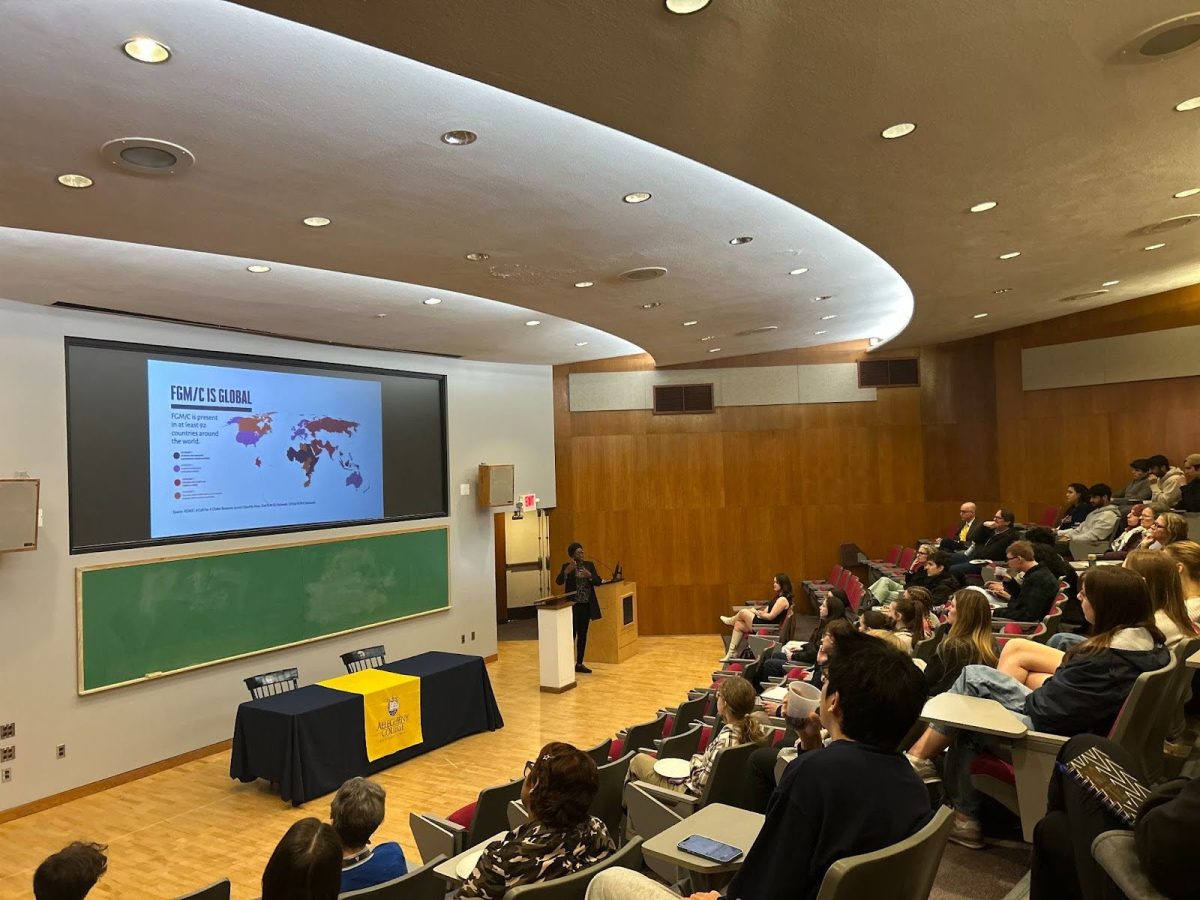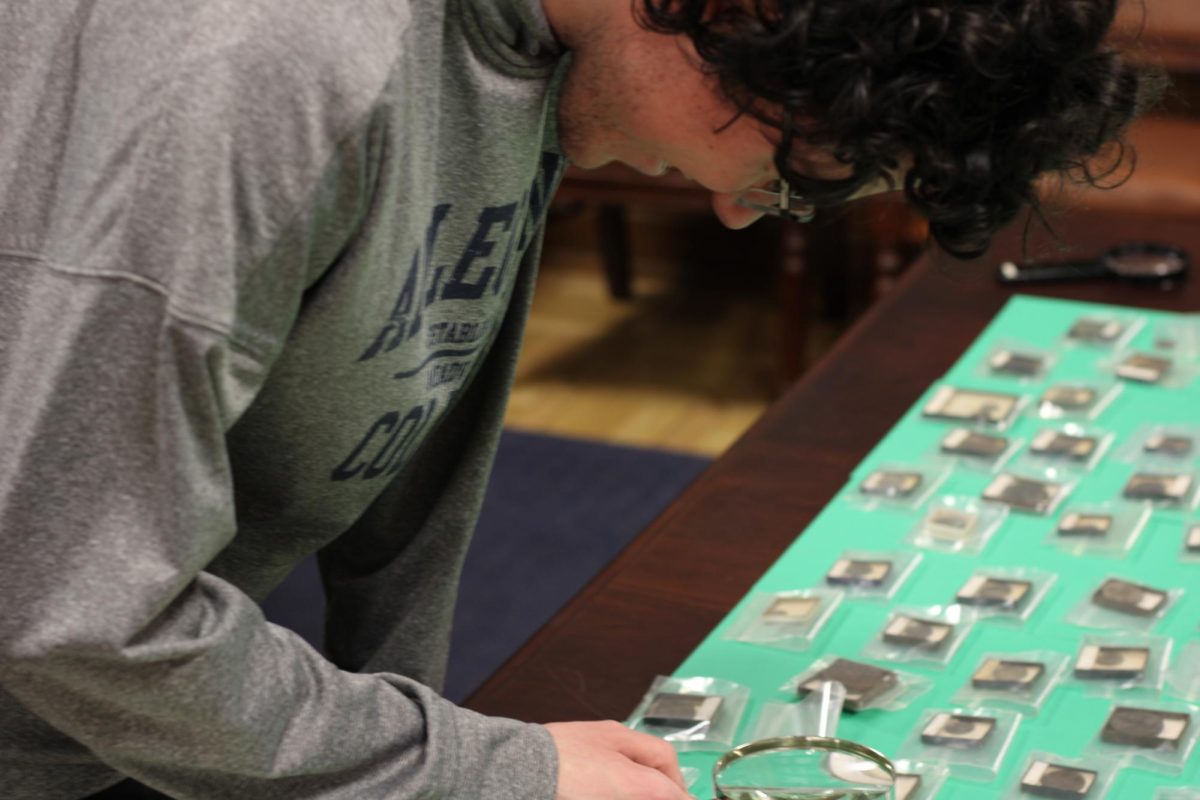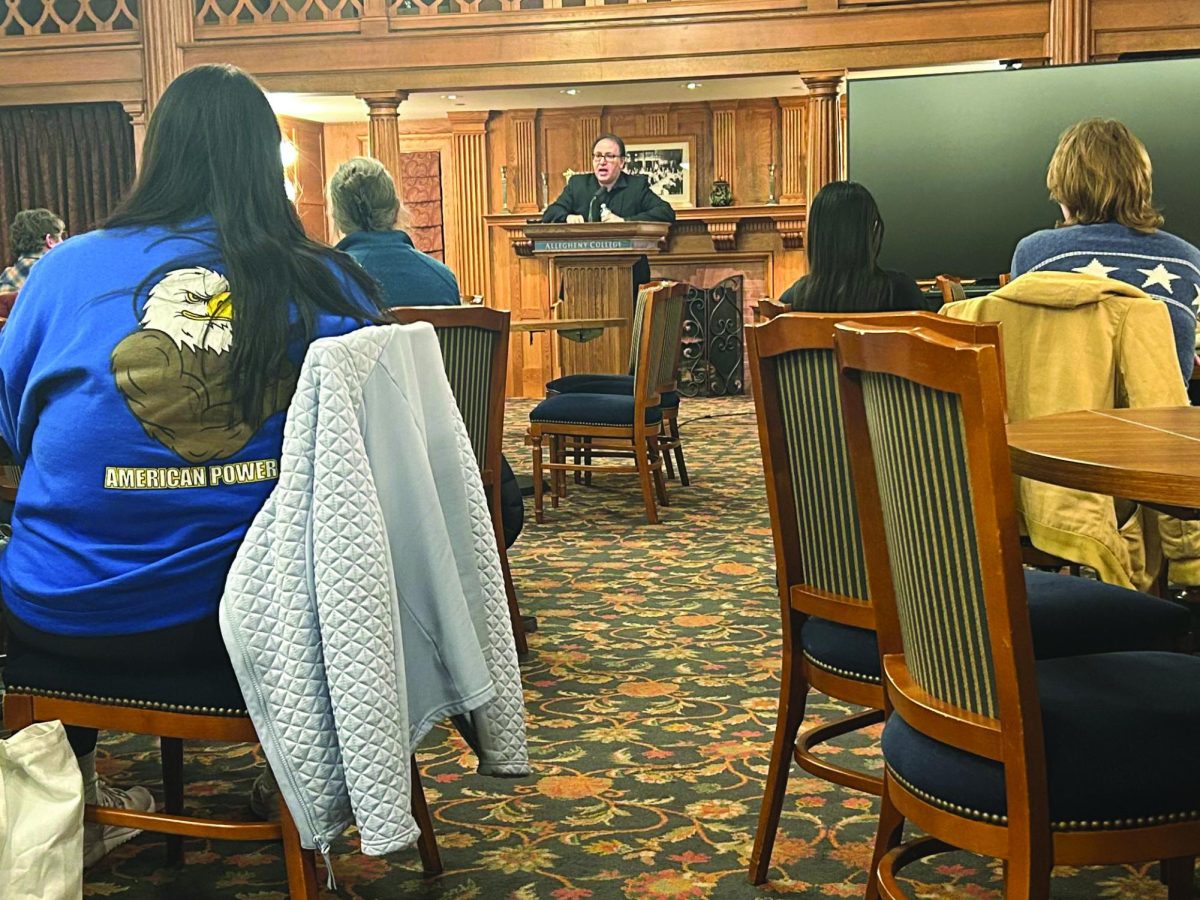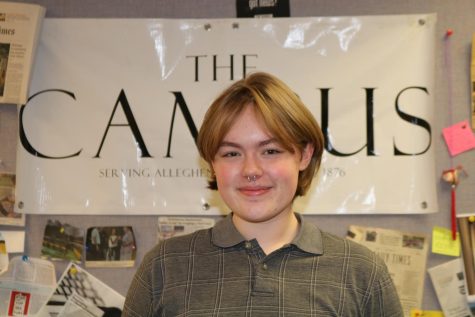
Associate Professor of Environmental Science and Sustainability Adrienne Krone is the recipient of a Fulbright scholarship and a residency with the Hadassah-Brandeis Institute in Boston as of this semester. Krone will be continuing her previous research into Jewish community farming in the U.S. and Canada during her sabbatical in the next academic year.
“All of this is to do the book project that I’ve been working on, on Jewish community farming, which I’m tentatively titling ‘Jewish community farming, the climate crisis, and the future of Judaism,’” Krone said.
Krone’s background is in religious studies, but her research on these community farms made for a smooth transition into the Environmental Science and Sustainability department when the Philosophy and Religious Studies program was dissolved. She began teaching at Allegheny in fall of 2016 and continued her research throughout her track to tenure.
“My dissertation to get my Ph.D is about religious food movements, and for that project I did fieldwork at two Jewish community farms,” Krone said. “I was offered a grant to continue that project and study the entire Jewish community farming movement. I’ve been to— I think there’s about 25 Jewish community farming organizations in the U.S. and Canada.”
Her research through the years has come to include students as well.
“In 2017 and 2018, three Allegheny students each of those summers worked with me, doing that research; traveled with me, interviewed with me, did farming with me,” Krone said.
Findings from her conversations with participants in these organizations have also influenced what Krone talks about in the classes she teaches.
“I would say a lot of things I teach are related,” Krone said. “I’m teaching ‘Intro to Judaism’ right now, which is mostly about Jewish history and Jewish culture and Jewish religion, but I of course sneak things in at the end and along the way about agriculture.”
Krone’s research focuses on the connections between farming, faith and sustainable practices in Jewish communities.
“If you look at the Hebrew Bible, the ancient Israelites were an agricultural people; they were very connected to the land,” Krone said. “So a lot of this is a project to reconnect Jews to literally their roots through roots, but with this eye on, there’s not going to be a future if we don’t do something about this now. And so a lot of this is directly engaged in climate mitigation and environmental advocacy work as well.”
Krone’s primary mode of research has been in interviewing participants of the organizations she visits, along with doing the physical farming work herself. In talking with participants, Krone explained that she is interested in how religion and sustainable farming are both reasons as to why someone would participate in a religious farming organization, specifically.
“People could farm a lot of places— they’re choosing to farm in Jewish places,” Krone said. “What is Jewish about the work that they’re doing? How are they connecting to this as a Jewish person? How is it helping them develop both a Jewish identity and an identity as maybe a farmer, or a gardener or wherever they’re going to go in the future?”








